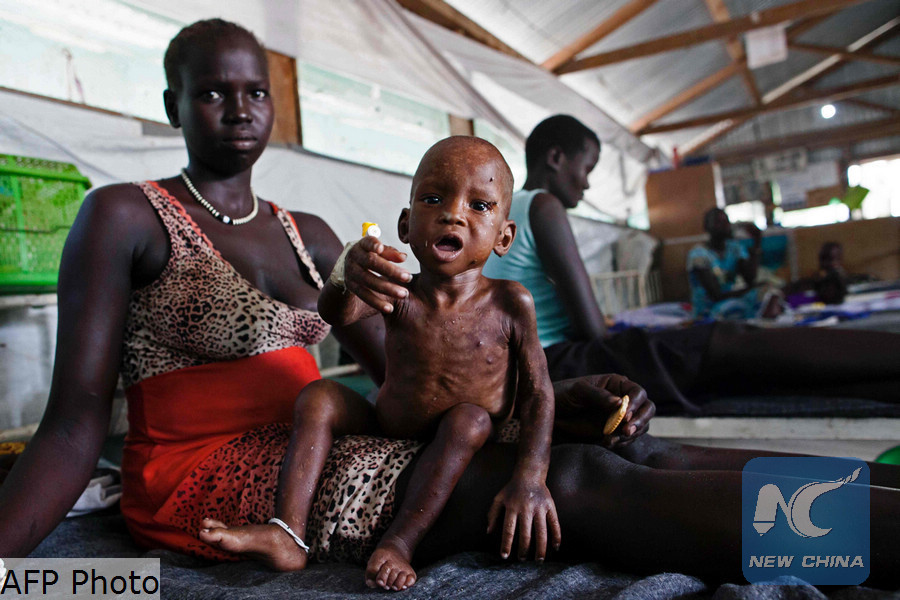
A woman holds a child with severe malnutrition at a clinic run by Doctors Without Borders (MSF) in Lankien, Jonglei State, SouthSudan, on April 8, 2016. (AFP/ ALBERT GONZALEZ FARRAN)
JUBA, Nov. 8 (Xinhua) -- The UN Food and Agriculture Organization (FAO) has warned of escalating food crisis in South Sudan in 2017, saying economic downturn and insecurity have further crippled food production and trade.
FAO Representative Serge Tissot said on Monday recent assessments show that the number of severely food insecure people is currently 3.7 million people -- 31 percent of the country's estimated population and an increase of an overall 1 million people compared to the same period last year.
"We are seeing an unprecedented number of food insecure people at harvest time and many more people at risk of starvation in the months to come as stocks run out. There is a need to act now to prevent a catastrophe," Tissot warned in a statement issued in Juba.

Photo taken on March 3, 2014 shows a child suffering from severe malnutrition being assisted by medical staff in a medical camp run by international humanitarian organisation Doctors without Borders (MSF, Medicins Sans Frontieres), where about 50 000 people have been vaccinated against cholera, in Minkamman, SouthSudan. (AFP/JM LOPEZ)
FAO said an increasing number of South Sudanese will continue to face difficulty in meeting daily food needs in the coming months despite harvests.
"The renewed violence has had severe repercussions on agricultural production and stability needs to be restored to enable farmers to return to their fields," Tissot said.
According to FAO, since the outbreak of fighting in South Sudan's capital Juba and other parts of the country, cereal prices have increased by more than 500 percent compared to the same period last year.
Trade has been crippled by rampant insecurity along the main trade routes with traders' inability to access hard currency for imports forcing them to close down their businesses.
"With the market collapsing and many families having little to no safety nets to cope, we must empower them with the means to produce their own food," said Tissot.
"With this we want to structurally strengthen their livelihoods and boost their resilience."
FAO aims to target 1.2 million people with distributions of vegetable and fishing kits and provision of training to farmers on modern farming techniques to increase yields during the forthcoming dry season campaign.

